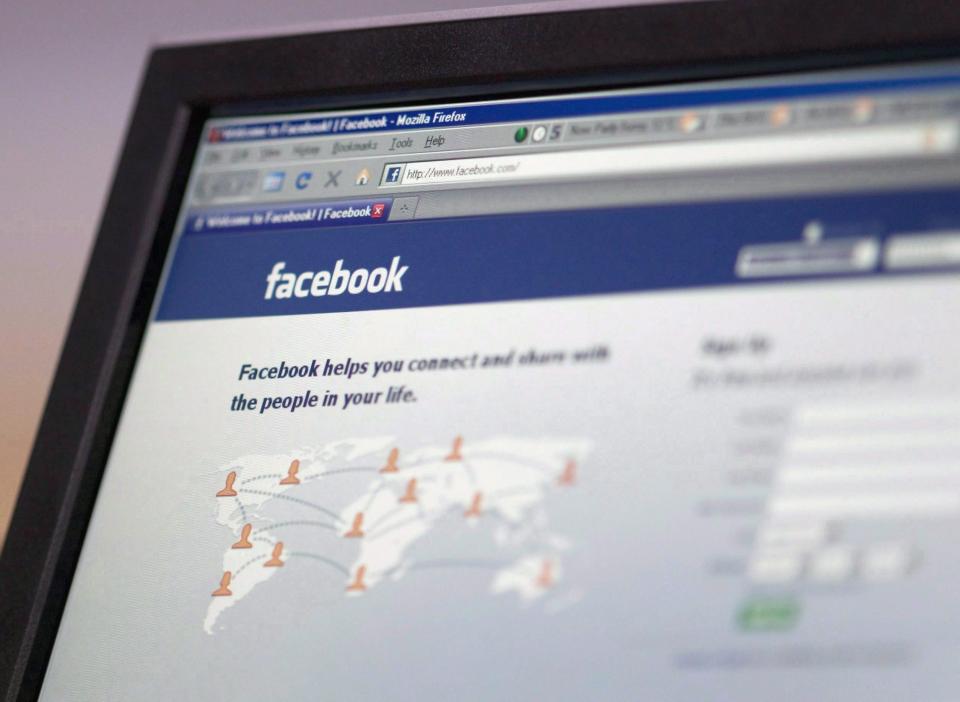How to access the mountain of data Facebook has on you

At the bottom of Facebook’s Settings page, there’s a line that’s easy to miss: “Download a copy of your Facebook data.” It’s been there for years and it’s not particularly hidden, but few people ever had cause to click it. The data inside was not particularly usable for a Facebook user, except on Facebook.
But with all the controversy surrounding Facebook-Cambridge Analytica scandal, in which the data of 50 million user profiles was misused, many users are reexamining their own relationship with the platform and the data it has.
It takes a few minutes for Facebook to prepare your archive into a .zip file to download, and once it’s unzipped, you can view it by double-clicking on the file “index.htm.” (The interface is web-based and will open in a browser.)
What your archive says
Your digital life, compressed into an archive, may be bizarre to see. Your relationships, should you have made them public are front and center in your details. Your email addresses, the names you used on Facebook (I used a fake name until 2014), your workplaces (one of mine just says “yes yes hi hello”), and all the things you “liked.”
Over the years, Facebook had different ways to deal with that stuff, so everything doesn’t quite match up perfectly. There used to be a place for favorite movies and books, and most of that merged to a general “Other” category. (Except for the movies category, which for me still displays “Roadhouse.”)
Among the items in the file are your entire timeline, which includes posts from previous iterations of Facebook, when posting on people’s walls, which comprised the bulk of a user’s interactions on the platform. (Perhaps it was not even a platform yet.)
Everything you and others posted is there, including all the things people wrote, assuming they were simply shouting into the abyss, figuring no one was listening. Facebook was, and they wrote it down!
Also present are the ad topics Facebook thinks you’d be into, the ads you’ve actually clicked on — this doesn’t seem complete, it says I clicked on only a few in just 2018 — and the advertisers that possess your data. Some of them are really weird: A friend texted me to say that “Rod Stewart” is listed under the advertisers that have his data. My editor’s archive showed that a bunch of cruise lines — and the musician Beck – had her data. (She has no idea why, and when asked whether she even likes Beck said, “I don’t know?”)
Most unnerving perhaps, are the private messages, compiled in one place. We get new phones or clear our old phone texts, but Facebook doesn’t have storage issues. It’s all here.
All of this should not be news to you. Facebook’s 3 billion users give this information willingly, and we certainly expect the company not to delete old posts. But the archive, compiled for the benefit of the user, puts the concept into alarming relief, showing exactly how much of our lives we’ve poured into it. And of course, how easy it is to condense a digital life into a .zip file.
It’s scary, but it’s not a surprise
When you post a photo on Facebook, you expect it to be available — even years later. Recently, Facebook even made a feature on this, showing friend retrospectives for friend anniversaries in your newsfeed. Similarly, the motivation for the collection of some of this data – advertising – was detailed in the fine print. Unfortunately, most don’t read the fine print and thus miss this devil in the details. (Though the fact that a 13-year-old is expected to read and understand this may trouble some.)
How Facebook can interpret all this data may be of more interest. You can see what their conclusions are if you read this article. From the data you provide as a user, what you “like” on the platform, they can get a decent picture of who you are.
Another friend and Facebook user I talked with noted that it was interesting that people seem more concerned with “psychographic data” rather than the fact that Equifax exposed 150 million Social Security numbers, something that has identity theft and financial security implications. The answer, of course, is because there’s a small-ish .zip file —mine was 34 megabytes filled with secrets. If it got loose, it would be pure KOMPROMAT. (Update your password.)
From a personal data hygiene perspective, if all this doesn’t sit well with you, the only thing you can really do is delete the contacts you may have uploaded to Facebook. Though you can make things hidden, purging the site of your data seems to mean full-scale account deletion, if you want to set fire to your old activity.
While you’re at it, you could delete Google Maps’ history of the places you’ve been (it’s very detailed), your Google search history, and YouTube search history.
–
Ethan Wolff-Mann is a writer at Yahoo Finance. Follow him on Twitter @ewolffmann. Confidential tip line: FinanceTips[at]oath[.com].
Critics assail Facebook CEO Mark Zuckerberg
